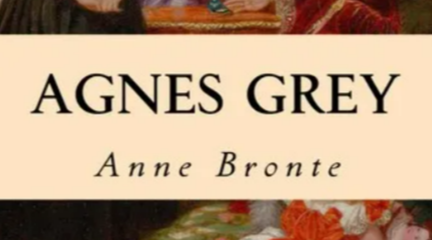Chapter VII — Horton Lodge
byChapter VII – Horton Lodge opens with Agnes Grey reflecting on her disillusionment within the walls of a stately home that promised refinement but delivered isolation. Horton Lodge, though grand and well-kept, was a place where she was reminded daily of her lowly status. Her youth, spent in service to a family that saw her not as a person but as an employee, began to feel like time lost. The children, indulged and unruly, rarely respected her role, and their mother, Mrs. Murray, paid more attention to outward appearances than to character. Agnes’s principles often clashed with the household’s values, creating emotional and moral strain. She found herself caught between loyalty to her duty and the growing weight of invisibility. Despite her effort to remain kind and patient, the lack of sincere appreciation slowly chipped away at her spirit.
The environment at Horton Lodge was one of elegant detachment, where elegance masked indifference. Mrs. Murray busied herself with plans for her daughters’ social ascent but dismissed any concerns that didn’t align with that goal. Education was treated as a necessity for show rather than substance. Agnes’s lessons were tolerated but rarely respected, and moral guidance was neither sought nor welcomed. In her loneliness, she found no companionship among the staff and no confidante among the family. Even the comforts of the estate felt cold, reminding her of what she lacked more than what she had. Over time, the physical beauty of Horton Lodge became a symbol of her emotional confinement. She lived among people but felt unseen, a silent presence in a world obsessed with perception.
Agnes’s resilience in the face of such emotional neglect reveals her deep moral commitment. She continued to teach with purpose, hoping that something meaningful might take root in her pupils’ minds, even when they mocked or ignored her. She believed in the value of truth, discipline, and kindness, even when those virtues were not reciprocated. But the disconnect between her ideals and the behavior around her led her to question the fairness of her role. She began to see how often sincerity was punished, while vanity was rewarded. Yet she refused to let bitterness guide her. Her reflections were painful, but they sharpened her understanding of society’s flaws and strengthened her quiet determination to remain true to herself.
The children’s lack of discipline was not their fault alone—it was the result of a system that excused poor behavior in the name of class and charm. Rosalie and Matilda were shaped not by teachers but by expectations of beauty, status, and wit. They learned how to charm guests, not how to think deeply or treat others with respect. Agnes saw this, and it pained her to watch potential go to waste. The girls were intelligent but misdirected, their talents harnessed for admiration rather than character. Her influence, though limited, was a rare voice of reason in a house built on artifice. Through her quiet persistence, Agnes became a silent critic of the very structure that employed her.
What Brontë reveals in this chapter is not just one woman’s hardship but a broader critique of class-based ignorance. Horton Lodge is a microcosm of a society where wealth shields people from accountability. The Murray family’s obsession with elegance and reputation is contrasted by their failure to nurture integrity or humility. Agnes’s experience exposes the emotional cost of this disconnect—not just for the governess, but for the children, who are being prepared for applause, not life. The chapter invites readers to consider the difference between social grace and personal worth, and the hidden cost of valuing one over the other. It also reminds us that even in small acts—teaching, listening, staying kind—resistance to shallow ideals can take root.
In the end, Agnes endures, not because she is blind to her pain, but because she chooses to keep believing in something better. Her time at Horton Lodge, though harsh, becomes a quiet training ground for resilience. It teaches her about injustice, but also about the strength of conviction. As she continues to teach children who barely listen, she holds on to her sense of purpose, knowing that one kind word, one true lesson, might still matter. Horton Lodge may have tried to define her, but Agnes retains the power to define herself. And that, in Brontë’s hands, becomes its own quiet victory.

